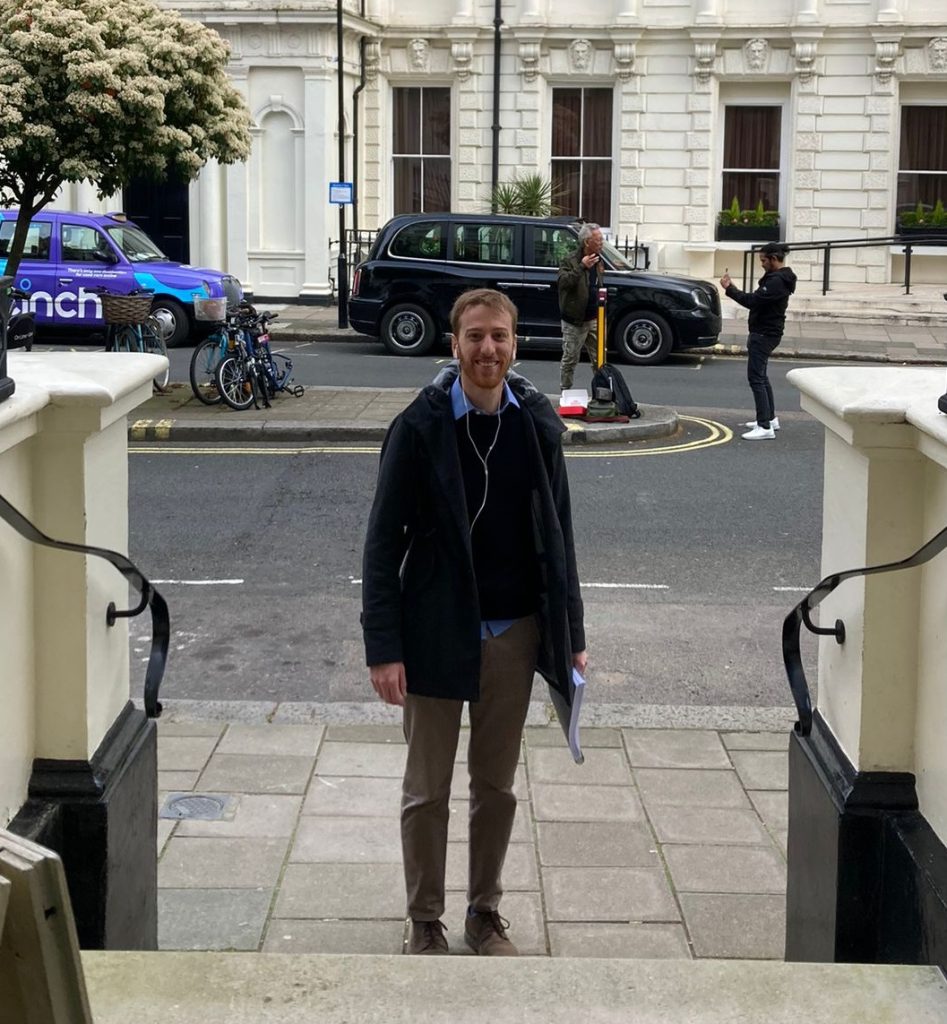ERBE is delighted to congratulate Adria Martin-Vilaseca who studied at UCL and passed his viva in late April 2024. We spoke to Adria, the first UCL ERBE student to reach the viva, about his experiences in studying for a PhD.
What was your thesis title?
Exploring home heating practices: A social and technical analysis of space heating with hybrid heat pumps operated by smart controls.

Tell us about your work
I started my PhD in 2019/20 and I was part of the first cohort of students that joined the ERBE CDT. I applied to a project that was partially sponsored by Passiv UK Ltd., a British company that develops smart controls for heat pumps. I was particularly interested in doing research that could be directly applied to the real world and doing a PhD in collaboration with industry was the obvious choice for me.
The interest of the research was to better understand how people use heat pumps with smart heating controls. These technologies are expected to play a key role in decarbonising the heating demand: they contribute to electrifying the domestic energy loads while helping to balance demand and supply through their smart operation. However, to achieve that, they require specific practices and have to be used in a certain way. Using qualitative and quantitative methods, I assessed whether domestic practices evolved in that direction after adopting the technologies in a series of case studies.
My findings are mainly constrained to two different areas: comfort and waste. First, I noticed that some changes in the indoor conditions, such as a reduction in the temperature oscillation, are welcomed while others, such as the noise or the temperature at night, are opposed in ways that reduce the capacity of the controls to forecast the heating demand. Second, I found that the operation of the new technologies sometimes conflicts with people’s understandings of waste and the new technologies are experienced as wasteful. The findings have helped the industrial sponsor to improve their heating controls.
Tell us about your time with the ERBE CDT
A PhD is not only a thesis and being part of the ERBE CDT was critical in my experience during these four years at UCL. First, it helped me to see beyond the narrow area of my research and better understand how it fits in the broader field; I particularly enjoyed the lectures that I attended during my first year: economics, energy modelling, research skills, etc. Second, it provided a structure for the project and very valuable support, which was particularly useful for me during the uncertain times of COVID-19. Finally, it connected me to a large cohort of PhD students and academics working on similar areas, which has helped me carry out various side projects and publish two research papers.
What were the highlights of your PhD/ERBE?
I am passionate about the energy transition and seeing that my research findings were useful and making a difference through the industrial sponsor, was one of the best experiences of my PhD. Also, attending conferences on the topic, such as the ECEEE conference or the ERBE conference in Ireland were some of the highlights of my PhD as they allowed me to connect with many other people in the sector.
What are you doing now/what’s next?
I am currently taking some time off. I plan to move back to the industry and use my experience at UCL and ERBE CDT to develop ways to help people navigate the energy transition and other societal challenges.
Acknowledgements
I would like to thank my supervisors, Michelle Shipworth and Cliff Elwell, for their guidance and continuous support. I am also grateful to Jenny Crawley for all the opportunities she has given me over the years and to Edwin Carter from Passiv UK Ltd for always being ready to discuss my work. Finally, I would like to thank “La Caixa” Foundation, Passiv UK Ltd, and EPSRC, for providing the resources needed to carry out this research.
